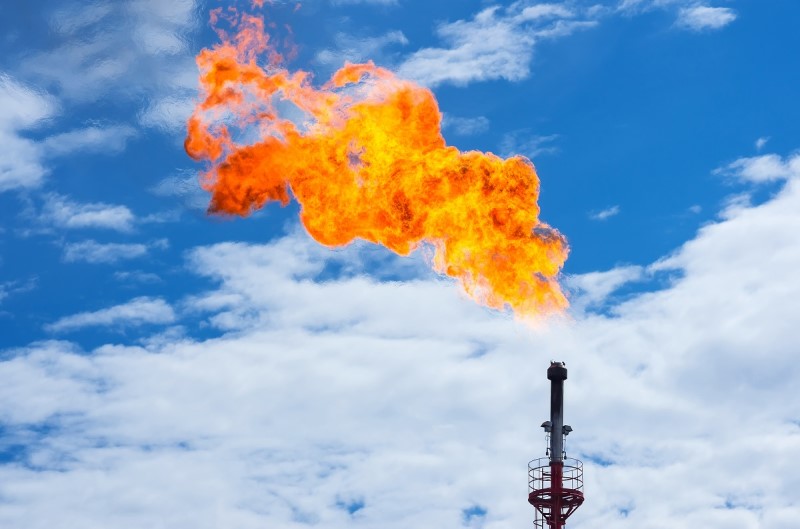Trump Administration Rolls Back Curbs on Methane Emissions
WASHINGTON (Reuters) — The Trump administration on Thursday rolled back regulations aimed at reducing emissions of the potent greenhouse gas methane from oil and gas operations, its latest move to unwind environmental rules ahead of November's presidential election.
During a visit to election swing state Pennsylvania, U.S. Environmental Protection Agency Administrator Andrew Wheeler formally rescinded 2016 Obama administration limits on oil and gas industry emissions of methane, a move criticized by environmentalists when initially proposed last August.
Wheeler said in Pittsburgh that new rules would save $100 million a year between 2021 and 2030. The rules will "fulfill President (Donald) Trump’s promise to cut burdensome and ineffective regulations for our domestic energy industry," he said.
Methane is the main component of natural gas. It is a more potent greenhouse gas than carbon dioxide but does not remain in the atmosphere as long. Recent scientific reports highlight the major role methane emissions play in worsening climate change. https://www.reuters.com/article/us-climate-change-methane/global-methane-emissions-rising-due-to-oil-and-gas-agriculture-studies-idUSKCN24F2X8
The new rules remove methane control requirements for the production and processing of oil and natural gas as well as curbs on emissions from transmission and storage.
The rules also exempt smaller oil and gas companies from a requirement they install equipment to detect methane leaks and change the required schedule for repairing leaks, "to respect the realities of the oil and gas industry" by allowing deferrals.
The EPA retained a rule issued in 2012 that limits volatile organic compounds that cause smog, which it says already reduces methane emissions.
The American Petroleum Institute (API) has said it supports the EPA's revisions even if some of its larger members like Exxon, BP and Shell have come out in support of mandatory methane regulations. Smaller drillers say the Obama rules were too costly for them to comply with.
"We support this revision," API regulatory affairs director Frank Macchiarola told Reuters. "But we understand that this rule has drawn diverse viewpoints across our industry."
The API said existing VOC regulations have led to methane emissions falling 60% from 2011-2018.
The rollbacks will be challenged in court, environmental groups and some state attorneys general have said.
"EPA must prioritize our health and safety over the profits of oil and gas companies, and we will hold them accountable in court,” said Earthjustice associate attorney Caitlin Miller.
In addition to the rollbacks, the EPA also set up hurdles for a future administration to regulate methane by requiring the agency to make a finding that methane contributes significantly to air pollution before proposing new requirements.
Joe Goffman, former EPA senior counsel and director at Harvard's Environmental and Energy Law Program, said reducing methane from oil and gas is necessary to combat climate change.
"The purpose of this rule is simply to strew baseless legal obstacles across that path, ensuring that after Trump and Wheeler are finally gone, their successors will have to struggle to achieve urgently needed methane reductions," he said.
Related News
Related News

- Kinder Morgan Proposes 290-Mile Gas Pipeline Expansion Spanning Three States
- Enbridge Plans 86-Mile Pipeline Expansion, Bringing 850 Workers to Northern B.C.
- Intensity, Rainbow Energy to Build 344-Mile Gas Pipeline Across North Dakota
- U.S. Moves to Block Enterprise Products’ Exports to China Over Security Risk
- Court Ruling Allows MVP’s $500 Million Southgate Pipeline Extension to Proceed
- U.S. Pipeline Expansion to Add 99 Bcf/d, Mostly for LNG Export, Report Finds
- A Systematic Approach To Ensuring Pipeline Integrity
- 275-Mile Texas-to-Oklahoma Gas Pipeline Enters Open Season
- LNG Canada Start-Up Fails to Lift Gas Prices Amid Supply Glut
- TC Energy’s North Baja Pipeline Expansion Brings Mexico Closer to LNG Exports





Comments